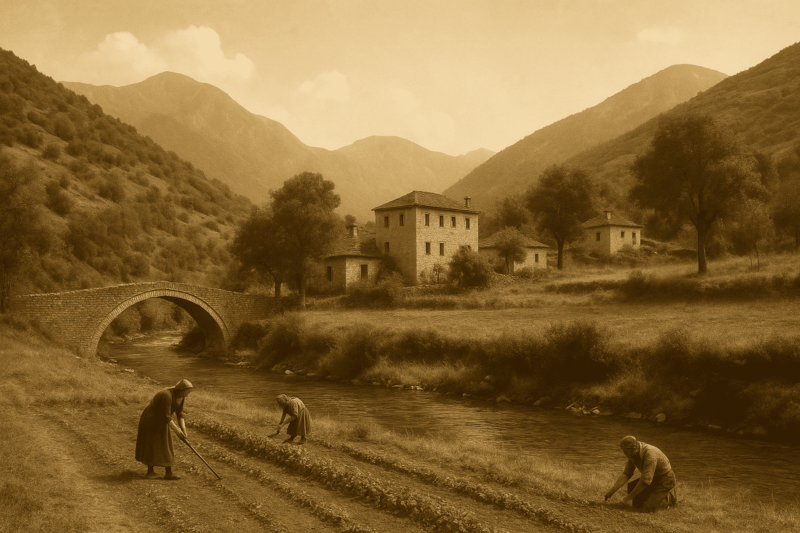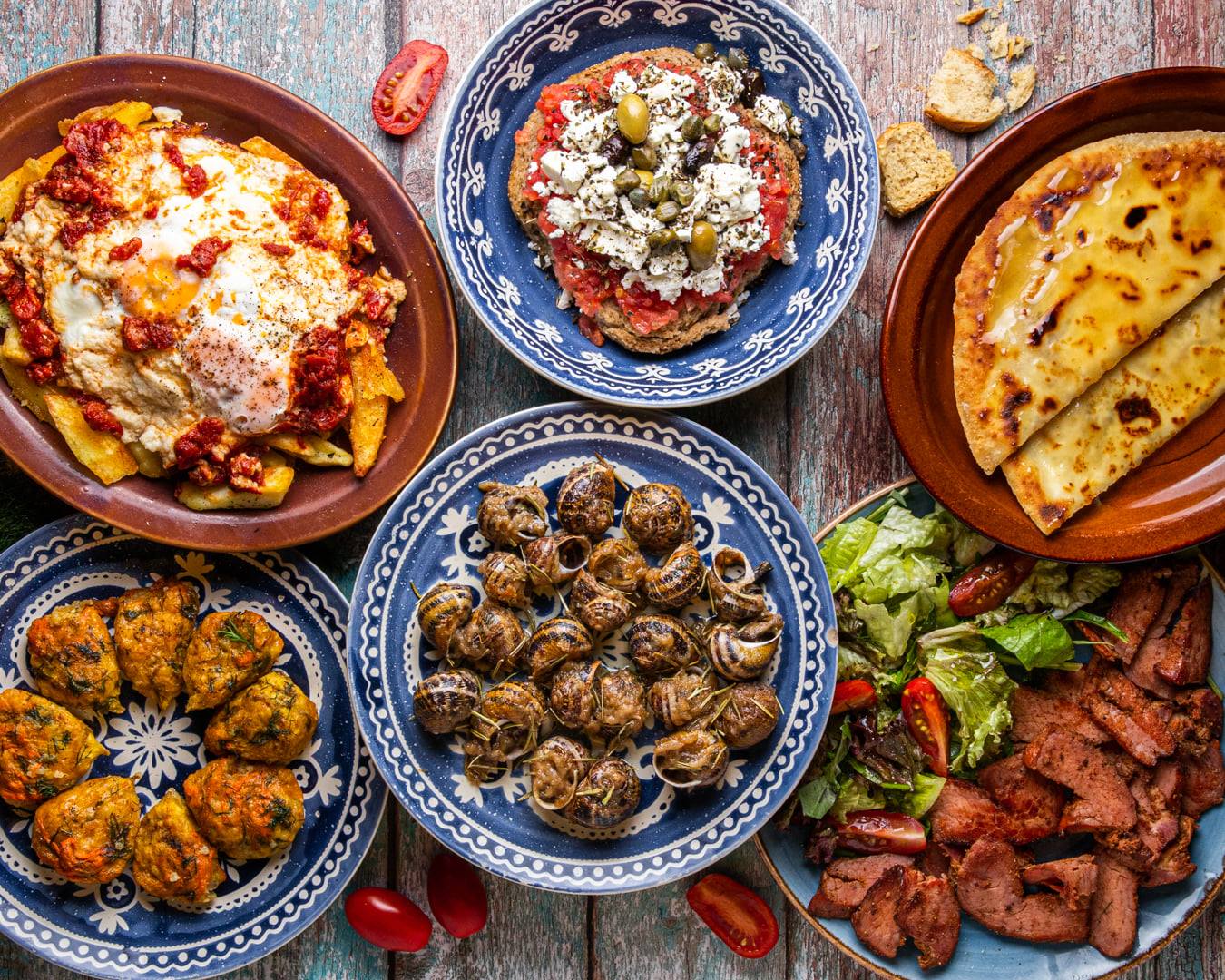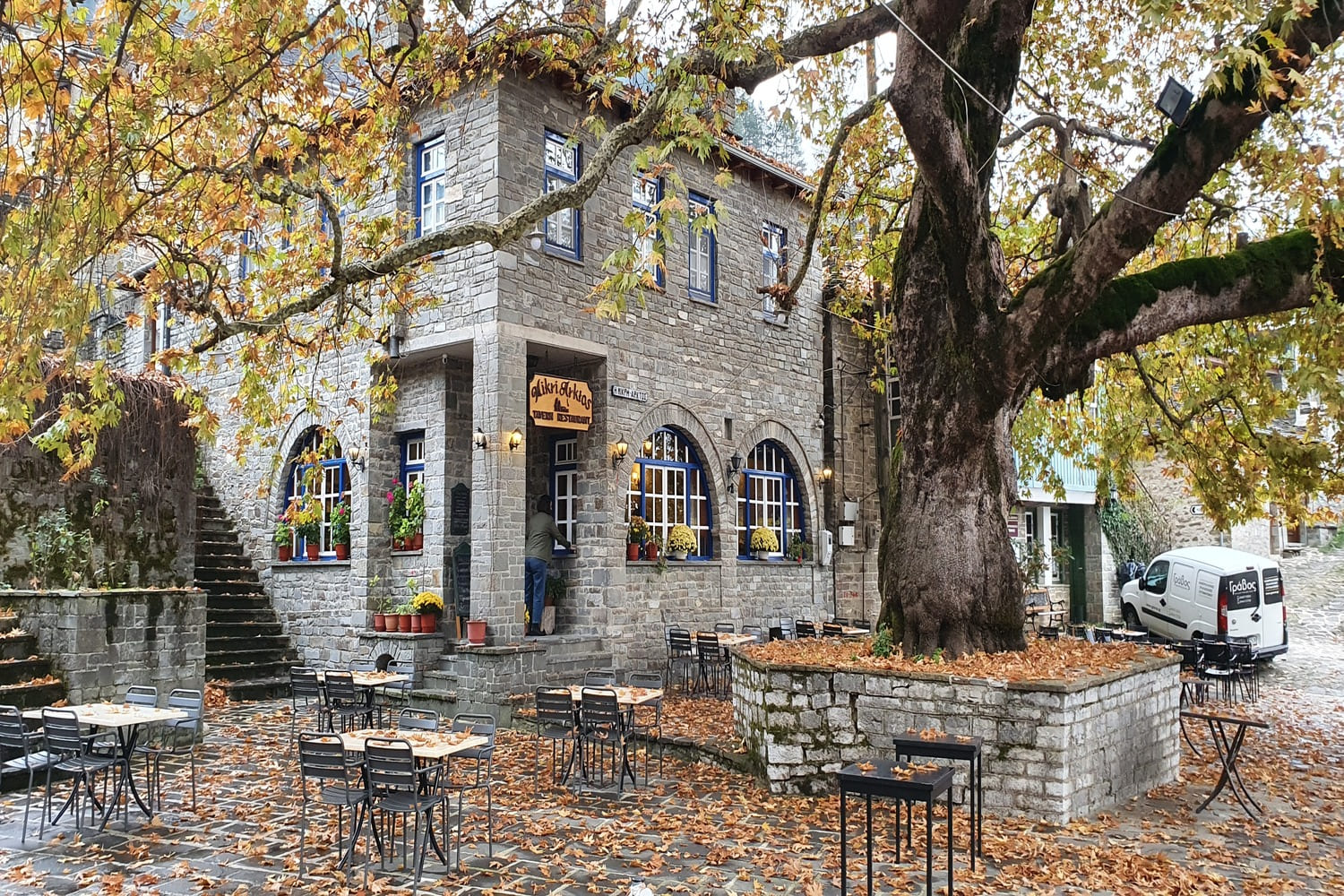
Walking Through History:...
Discover the rich history of Greece's Pindus Mountains, from Ottoman-era...

In Greece, food is more than just sustenance; it's a way of life. From the bustling tavernas in Athens to the serene seaside restaurants on the islands, Greek eating culture is a vibrant celebration of flavor, family, and friendship. Embarking on a culinary odyssey through Greece offers not just a taste of its delicious dishes but a deep dive into a culture that revolves around the joy of sharing and the art of hospitality.
The Pillars of Greek Cuisine
Greek cuisine is a reflection of the country’s rich history and its bountiful land and sea. At the heart of Greek cooking are simplicity and quality, with a focus on fresh, locally sourced ingredients. Olive oil, olives, feta cheese, fresh vegetables, grains, fish, and meats are staples, each playing a crucial role in creating dishes that are both nourishing and bursting with flavor.
The Tradition of Meze
A quintessential aspect of Greek dining is the tradition of meze. These small, shareable plates encourage communal eating and conversation, turning meals into social events that can last for hours. From tangy tzatziki and spicy feta dips to grilled octopus and stuffed grape leaves, meze offers a palette of flavors that are as diverse as they are delicious. It’s not just about the food but the experience of sharing, discussing, and enjoying each other's company.
The Rituals of Greek Dining
Dining in Greece is imbued with rituals that reflect the country's history and Orthodox Christian traditions. Festivals and religious holidays are often marked with special foods and communal meals, such as lamb on Easter and fasting foods during Lent. These rituals are not just about eating but about coming together to celebrate and give thanks.
The Importance of Seasonality and Regionality
Greek eating culture places a strong emphasis on seasonality and the geographical diversity of its cuisine. From the olive groves of Crete to the vineyards of Santorini, each region offers its unique contributions to Greek gastronomy. Seasonal fruits and vegetables, fresh seafood, and locally produced cheeses and wines make every meal a reflection of the time of year and the landscape.
Tavernas and Kafenia: The Social Hubs
The Greek taverna is more than just a restaurant; it’s a gathering place where friends and family come together to celebrate life’s joys and sorrows over good food and wine. Similarly, kafenio (coffee shops) serve as the daytime counterpart, offering a place for leisurely conversation over coffee and pastries. These establishments are the backbone of Greek social life, embodying the spirit of kefi (joy or passion) that is so intrinsic to Greek culture.
Sustainable Practices and the Future
In recent years, there has been a growing movement in Greece towards sustainability in food production and consumption. Organic farming, responsible fishing, and a focus on local sourcing are becoming increasingly important, ensuring that Greek eating culture not only preserves its traditions but also its environment.
Conclusion
Exploring the eating culture of Greece is to embark on a journey through the heart of its society, where food is celebrated not just for its taste but for its ability to bring people together. It’s a culture that honors its past, savors the present, and looks to the future with a mindful approach to sustainability and community. Whether you’re enjoying a simple meal of fresh bread and olives or feasting on a spread of meze and grilled meats, the essence of Greek cuisine lies in its warmth, diversity, and the joy of sharing a meal with others.
This exploration into Greek eating culture invites travelers to experience Greece not just as tourists, but as guests welcomed into a community that finds profound joy and meaning in the act of sharing a meal.
by Kostas Georgiadis
19/03/2025

Discover the rich history of Greece's Pindus Mountains, from Ottoman-era...

For centuries, Greece’s mountainous landscapes have been crisscrossed by an...

The stone bridges of Zagori, located within the Epirus region...

Nestled in the heart of the Pindus mountains, the region...